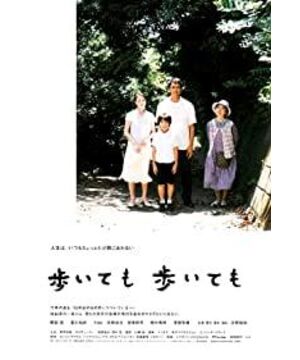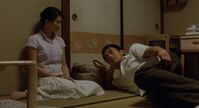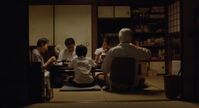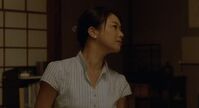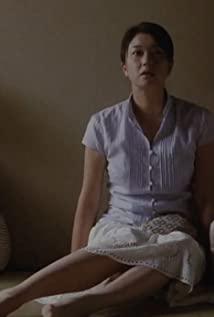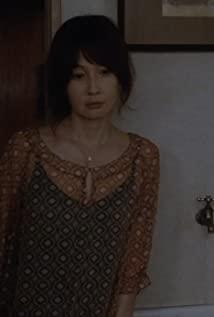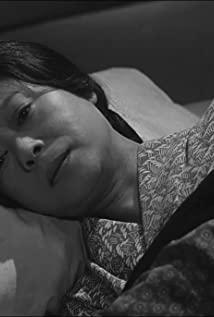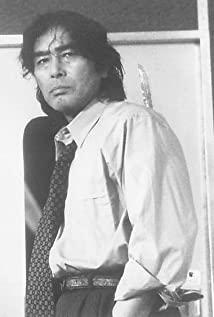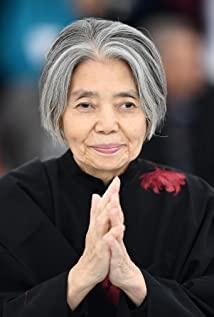There is no sense of breakage in his films, he does not aim the camera at a certain person or something, he does not deliberately present any of his subjective consciousness to you, and he does not make a movie for the sake of making a movie. All he did was to present what he saw in the form of film, which was also a kind of trust in the audience. Because he believes that we live in the same world of love, and believes that we can feel what he has not said.
Just like some people like furniture made of logs, they like to drink tea made from fresh tea leaves, go to the shade of the trees on the river bank when it is hot, and move the potted plants out to enjoy the rain on rainy days. Being a human being may be different in some respects, but every day you receive the same kind of sunlight, breathe the same air, and step on the same piece of soil. Some things are self-evident.
It seems that every family has one or several men who are not good at talking.
Just like the father Kyouhei in the movie, he sternly stopped the two children's fight, walked away when everyone took a family portrait, read the newspaper pretending to be disinterested when everyone was chatting around the dining table, and childishly treated the records of his wife's collection. To devour it means disdain. Maybe it’s because you can’t let go of your self-esteem, maybe it’s poor expression or unwillingness to express, after all, this kind of thing is not really true or easy to describe. But he did keep watching his family secretly. So when he took a bath, he asked about the origin of the record through the glass door, and exchanged ideals with his grandson Housi in the room. These are the love he secretly revealed.
The second son heard the story of the yellow butterfly from his mother. "That yellow butterfly, that's a cabbage butterfly that won't die in winter. In the next year, it turned yellow again and came back here." My daughter asked the question she asked, "Who told you that? At that time, he also pretended to be confused like his mother and asked himself, "Well, who is it•••" This kind of calm thoughts, like deep water and silence, must have passed down to the world of his parents.
Hoshi is the same. When asked by his mother if he remembered the butterfly catch with his deceased father, he said indifferently whether he knew. Stand alone in front of the piano and strike a single tone when no one is paying attention, and imagine the job of a tuner father. In the dead of night, he told the heavenly father about the yellow butterfly in the face of the night.
Their care, their care, and their longing are no less than obsession with the mother who treats the yellow butterfly as a grown-up child.
It is Hirokazu Ee's film that succeeds because each of us has experienced the seemingly ordinary life in the film. There are such people around us, or we are.
Michelangelo once said. "The thing I want to carve originally exists in this piece of marble. What I did was just knock out the extra stones."
So Hirokazu Ede did it, only with the bright summer light and shadow, and the cool chord accompaniment. , The ordinary picture without modification, re-emerges life with its due color.
Great sound is hopeful, great love is invisible. The steps I have been following you, everyone in this world is stepping.
View more about Still Walking reviews


